Few rock drummers can boast a résumé as rich and impressive as that of Joe Vitale. Over the course of the past 50 years, Vitale, born April 2, 1949, has recorded and toured with a Who’s Who of music legends, including Joe Walsh, Rick Derringer, Peter Frampton, and Crosby, Stills, Nash & Young. His long-running partnership with Walsh, in particular, has yielded a trove of classic material, including the ’70s rock staple, “Rocky Mountain Way,” for which he served as co-writer, and “Pretty Maids All in a Row,” another co-write that appeared on the Eagles’ Hotel California album.
In some ways, Vitale’s career attests to the interconnected fabric of the music community during the ’70s. Taking note of Vitale’s talent, musician-friends of Walsh began seeking out the drummer for their own projects—sometimes for tours, other times for studio work.
High points in Vitale’s musical journey include a touring stint with Frampton during the Frampton Comes Alive! period, and a working relationship with Crosby, Stills & Nash (and sometimes Young) that stretched over a period of 35 years. In addition, Vitale served as a utility player for the Eagles, playing percussion, keyboards and flutes on tour after Walsh joined the band in 1975.
“I think it all goes back to being a kid, to seeing the Beatles on The Ed Sullivan Show and growing up through the evolving music business,” says Vitale, when asked about the secret to his longevity. “It’s a passion that’s irresistible.”
From his home in Ohio, Vitale spoke with us about his diverse musical experiences, including a secret project with a certain Beatle that took place in the mid ’70s.
Watch Joe Vitale play a brief drum solo
Best Classic Bands: You’ve worked with an amazing number of artists through the years. How do you account for that? Is it versatility? Personality?
Joe Vitale: It’s a lot of things. Playing ability has a lot to do with it, of course. And the ability to network. There’s also a lot of luck involved, being in the right place at the right time. Back in the ‘70s, a lot of us moved around, among lots of different bands. There was so much recording going on. The music business was really alive back then. I’ve played on 52 albums over the course of my life, and most of those records were made in the ’70s and ’80s.
People sometimes forget that in those early days, major artists were expected to release an album every six months.
Oh, yeah. There were record deals where the contract specified you had to make, say, three albums in the course of two years. It’s funny. There was nothing in the contract that said you couldn’t deliver a live album, so that’s what a lot of bands did when they weren’t happy with their record label. They would release a live album to finish out their contract. But yes, the record companies demanded that. We would do an album, go out on the road, write while we were on tour, and then come back and record another album.
You’ve had a special working relationship with Joe Walsh, for decades. Can you characterize that partnership, explain what’s made it work so well?
Last year marked 50 years since we first became friends. With the exception of my wife, I’m not sure I’ve known anyone longer. It’s all about the chemistry, the magic. Joe sometimes says that he’s a pretty good musician and writer, and I’m a pretty good musician and writer, but together, we’re a genius. He’s not one to brag, and neither am I, but I get what he’s saying. First of all, you have to be friends. A lot of times the business side of things gets ugly and friendships get destroyed. Sadly, a lot of partnerships do drift. Thank God that never happened with Joe and me.
You co-wrote “Rocky Mountain Way” with Walsh. Did the two of you sense right away you had something monumental on your hands?
Not at all. It was the last thing we cut for the album. We just thought, what a great way to finish off the record. It wasn’t really a throwaway, but it was a case where Joe had written all these songs and we needed one more. We figured, well, let’s just throw in a slow blues; that would be fun. Who would have thought it would become his biggest hit? When young people ask me for advice, I always tell them to never rule out luck.
Related: The rise of Joe Walsh in the ’70s
You’ve also played a major role with Crosby, Stills, Nash & Young. You’ve probably done as much work with those guys—recording and touring—as anyone outside their inner circle.
Yes, I’ve worked with CS&N, and sometimes Y. I’ve worked with Crosby, Stills & Nash for 35 years.
Each of those artists has a big, forceful personality. How would you describe the working dynamic among those four?
Well, that’s what it is. It isn’t as if there’s one guy who’s the leader and the rest are band members. All four are bull-headed gunslingers, each is a fantastic artist, and there’s going to be a battle every once in a while. It got rough at times, but they finally landed in a good place. They finally settled on a philosophy that said, hey, if you wrote the song, you’re the leader—you tell the band how to do it. Having just one guy be in charge, at all times, didn’t work, because there were four bosses. Remember, they kept their individual names. They were going to be Crosby, Stills, Nash, and Young—four names, four individuals. That says a lot. They were never going to be the so and so’s. Still, for the most part they got along great and had some great times. And of course they made great music. It’s extraordinary to have that much talent in one band.
Watch Vitale perform at CSN’s Rock Hall induction in 1997
Your friendship with Walsh eventually led to your working with the Eagles. Was the Eagles’ method of working similar to that of CSN&Y, or did they have a sort of de facto leader?
I think the Eagles were more like a real band, more bonded in that way. I think Glenn [Frey] was pretty much the leader, but [Don] Henley had a lot to say about everything, too. They were the original guys. When I was there, Joe was new, Don Felder was new, and Timothy B. Schmit was new. I came along and became the utility guy, playing lots of different instruments on-stage. Plus, Joe was more comfortable with me drumming on the James Gang material, as well as his solo material, which was fine with Henley. And whenever Henley would go out front and sing, I would handle the drums. It was kind of the same way they do things now, with their new band.
Watch Joe Vitale perform with Joe Walsh and Waddy Wachtel in 2016
Do you remember anything about Frey that sort of stays with you, something he did or said?
He was so kind to me. He would always tell me, “There are a lot of hacks out there, but you’re a player. That’s why we hired you.” That was really humbling. Glenn was really funny; he had a great sense of humor. One night we were having fun, playing a song called “Those Shoes,” and I made up my own drum fill, coming out of the solo. I thought it was really good, kind of cool. Later that night Henley called me up to his room. He cracked open the door and said, “Hey, you know that drum fill coming out of the solo on ‘Those Shoes’?” At that point I thought he was going to give me a compliment, but instead, he says, “Don’t do that.” He wasn’t mad or anything, but word got around the camp. The next day, at sound check, Glenn comes up to me. He pulls out three or four hundred-dollar bills and says, “Here, play that drum fill again.” (laughs) It was all good, healthy stuff. That’s the kind of bonding that keeps a band together.
Listen to Vitale play organ on the Eagles’ 1980 tour
You were also part of Peter Frampton’s touring band when he was in the throes of his Frampton Comes Alive fame. That must have been really crazy.
Yes, that was gigantic. I didn’t play on the Frampton Comes Alive! Album. I was brought in later, after there was a falling out with the drummer. I knew Peter’s bass player, Stanley Sheldon, really well. He called and asked if I wanted to come fill in for three shows. I said, “Absolutely, that’d be fun.” They overnighted a cassette to me, I listened to the songs and worked on my parts, and the next day I was on a plane heading to a stadium show. I did the three shows, and afterward Peter came up to me and said, “What are you doing for the next 18 months? Would you like to stay on?” And of course I said yes. That was during ’77 and ’78. But yes, Peter was on fire. It was nuts, how big he was. He was a really great live performer. He delivered a great show.
You’ve made three solo albums, each of which has been well received. Why haven’t you done more solo work through the years?
Mostly because I stay so busy. Being on the road so much made it quite difficult. But in the past year, my schedule has lightened up. Right now I’m just one or two songs away from a new album.
Listen to “Mad Man” from Vitale’s 1974 Roller Coaster Weekend album
Will this be a total do-it-yourself project?
It’s mostly DIY. I do most of the stuff myself—we call it building a record—and then I bring in Walsh or whoever else I might need. I play no guitar at all. Usually I have guest guitar players and maybe a bass player now and then. Sometimes I go to Nashville—there are such good players there. It just depends on the song, what instruments I’m lacking or what I really need. I always need guitars. Joe will definitely be on it.
Who are some drummers who’ve inspired you?
When I was really young, I studied jazz. I was into Buddy Rich and Gene Krupa—those types of guys—and I use a lot of that knowledge whenever I’m playing any kind of fusion nowadays. And then of course there’s Ringo Starr. Ringo is the songwriter’s dream drummer—he always has the perfect parts for songs. He’s been a huge influence. And then there’s John Bonham, for the times I’m playing stuff that’s real heavy. There are three or four different guys who I really love, with overlapping styles. Sometimes a producer will say, “Listen, we need ‘Ringo’ drums on this.” And I know exactly what to do, what he means. Another time a producer might say, “Bring out your John Bonham chops.” The styles of those guys is eternal. They work on all kinds of music.
In 1974 you did some recording sessions at the Record Plant with John Lennon. What was that all about?
That was great. I was in L.A. and Joe Walsh called me one night. He says, “Hey, let’s go to the Record Plant.” I’m like, “Okay, what are we doing?” He says, “Oh, nothing much. Just helping out on some demos with John Lennon.” I couldn’t believe it. We recorded every Sunday night, for four weeks. The strict rule was, “Don’t talk about this on the street. Keep this secret.” And we got it, we understood that. We recorded from midnight till 6:00 a.m., because John didn’t want anyone else in the studio. It was quiet time. Ringo was there, Ronnie Wood, Van Morrison, Nicky Hopkins, all these musicians. All of this was recorded. I imagine Yoko Ono probably has the tapes.
What brought it to an end?
Well, we were set to carry on for several more weeks, but then somebody at the Record Plant leaked it out. It might have been a member of the staff, an assistant engineer, a receptionist, I don’t know. On that final Sunday night, or Monday morning, when we opened the door to go outside, there was a massive crowd in the parking lot. And that was it. The whole process was shut down.
After all these years you still get excited about making music, about what you’re doing. What’s the secret to keeping that excitement alive?
It’s all about the love of performing and playing. It’s not as if you’re trying to hold onto something; it’s something that’s irresistible. It’s like, why are the Rolling Stones still out on the road? Why is Paul McCartney still doing concerts? Obviously it’s not because they need the money. B.B. King was out on the road till he was almost 90. I suppose some people are able to give it up, but most of us aren’t. I still get excited about doing shows. I still get butterflies.
Watch Vitale play with Joe Walsh and Barnstorm in 2017
- Singing Rock Drummers: From the Skins to the Mike - 03/02/2025
- Rod Stewart & Friends: 10 Great Collaborations - 01/10/2025
- Band on the Run: The LP That ‘Saved’ McCartney - 12/05/2024

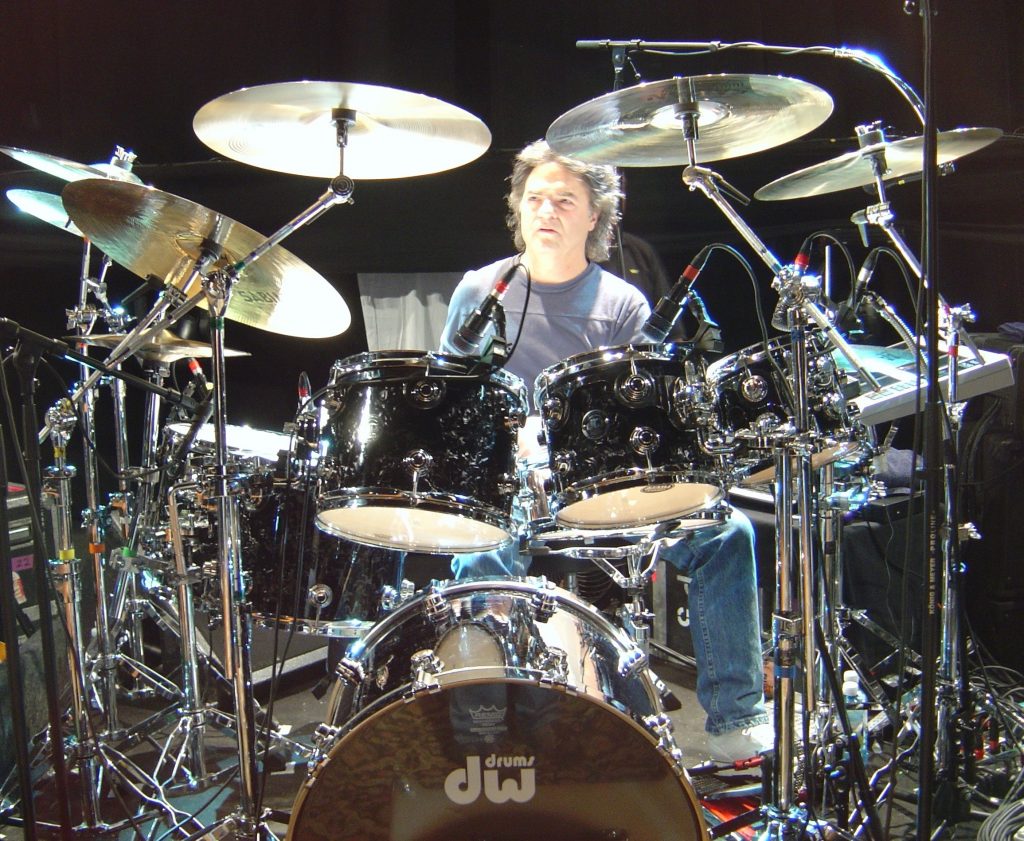
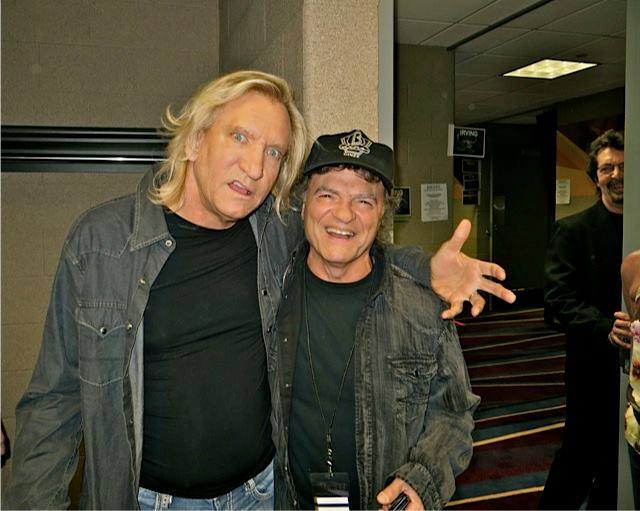
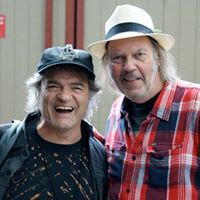
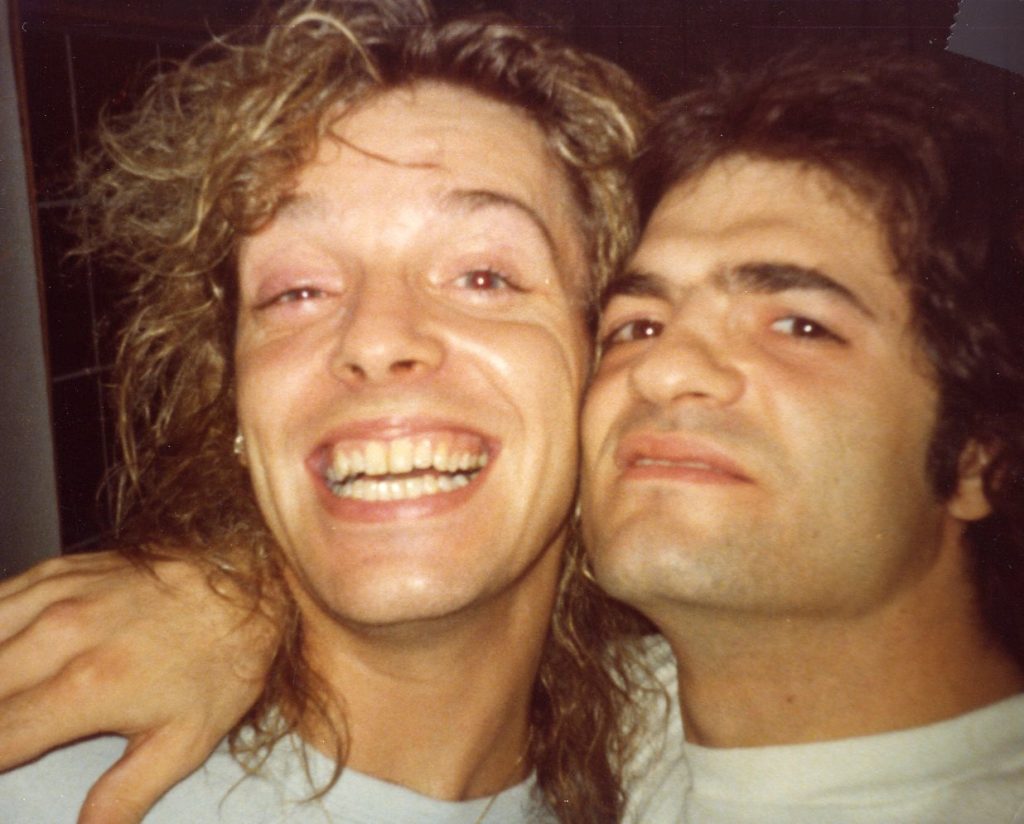
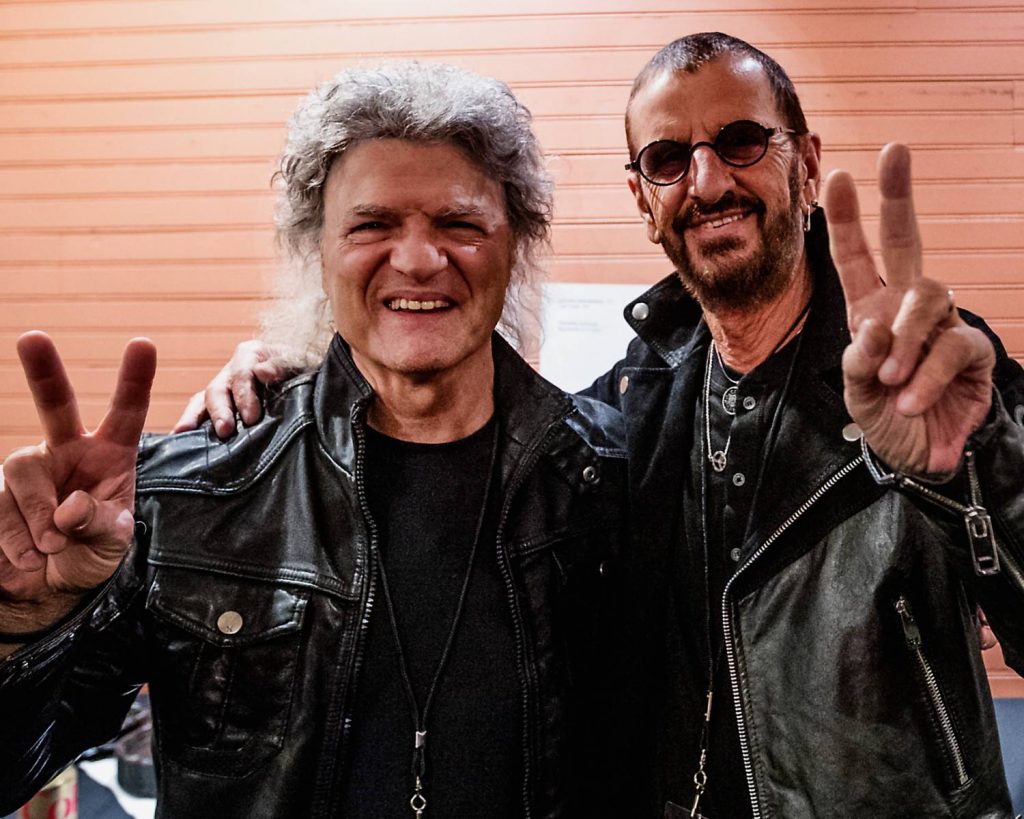



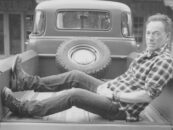

7 Comments so far
Jump into a conversationVery glad to see an interview with Joe; what a long and storied career!
Great interview! I really like Joe’s solo records, so it would be great to hear new music from him.
Great reading the amount of musicians he played with and the amazing people he has met over the years. You could not ask for a better interview from the legend, great stuff
Love the photo of Walsh & Vitale with Michael Stanley “photo bombing” in the door way!
Nice catch. Three Ohio boys that made major contributions to the world of rock ‘n roll.
Joe had a great book written by his wife Susie that details his many years in the biz.
Joe Vitale – Backstage Pass
I LOVE that Frey story, about pulling out a few hundred dollar bills and telling Joe to “play that fill again” after being told by Henley to NOT do it. That’s great stuff!